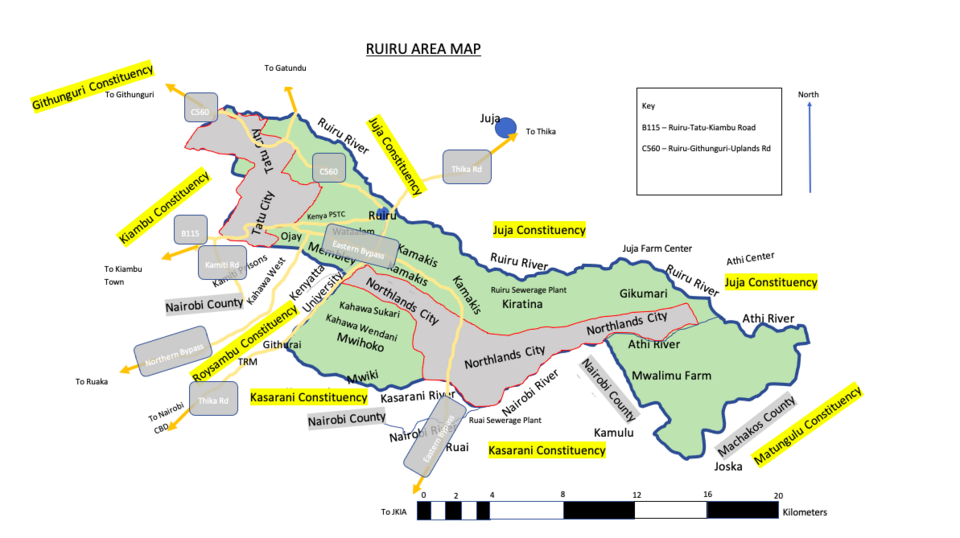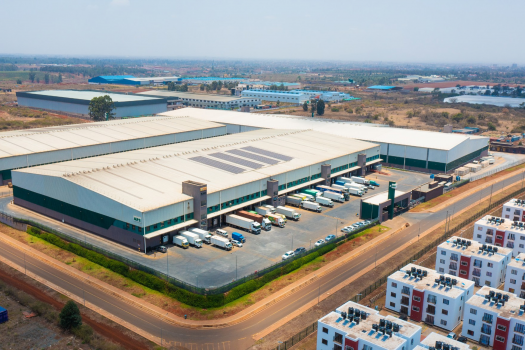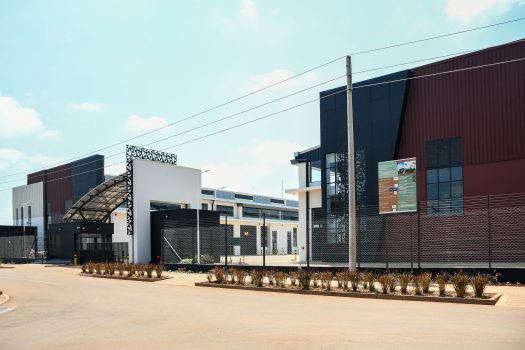Tatu City Logistics Park Set to Spur SME Growth in Kenya’s Expanding Industrial Hub
The Tatu City Logistics Park launch marks a pivotal moment for SME growth in Kenya. The new development promises to transform logistics, warehousing, and trade in one of the fastest-growing industrial hubs in East Africa.
Tatu City Logistics Park: A Boost for Kenya’s SME Economy
Kenya’s ambitious economic transformation is taking another leap forward with the unveiling of the Tatu City Logistics Park, a modern warehousing and logistics hub designed to support the growth of small and medium-sized enterprises (SMEs). Strategically located within the expansive Tatu City, Kenya’s flagship private urban development project, the new logistics park aims to close the infrastructure gap that has long hindered local business scalability and market access.
The project is being led by Stefano Baldin, CEO of ALP (Africa Logistics Properties), in partnership with Tatu City Ltd. It is part of a larger effort to decentralise Nairobi’s congested commercial operations and catalyse SME growth by offering smart, scalable industrial spaces outside the city centre.
Inside the Tatu City Logistics Park Vision
Located in Tatu City, Kenya, the logistics park covers more than 30,000 square meters of Grade A warehouse space with room for expansion. It’s tailored for SMEs that require flexible warehousing and logistics support but have long been priced out or underserved by the capital’s high-cost industrial zones.
Each warehouse has energy-efficient systems, high loading bays, security technology, and reliable infrastructure, including 24/7 power and water supply. This addresses one of the most significant pain points for SMEs in Kenya—unreliable utilities and lack of access to affordable storage solutions.
In addition, the park’s location offers proximity to both the Eastern and Northern bypasses, making goods movement efficient and predictable—a rare advantage in Nairobi’s often unpredictable logistics environment.
Why It Matters for SME Growth
According to the Kenya National Bureau of Statistics (KNBS), 2016, SMEs are the heartbeat of Kenya’s economy, contributing over 33% to GDP and employing more than 80% of the country’s workforce. Yet, many of these businesses have struggled to scale due to poor infrastructure, limited access to formal logistics, and the high cost of doing business in urban hubs like Nairobi and Mombasa.
The Tatu City Logistics Park offers SMEs a cost-effective and high-quality alternative for storing, distributing, and scaling their goods and services. The warehousing spaces are designed with growth in mind—small businesses can start with minimal square footage and expand within the park as their operations grow.
This “grow-within” model is vital in a country where most SMEs operate informally and often collapse due to logistical and infrastructural challenges.
Tatu City: Building Kenya’s First Private Smart City
Tatu City, located just 25 kilometres from Nairobi’s CBD, is a visionary development that is redefining urban planning in Africa. Envisioned as Kenya’s first operational Special Economic Zone (SEZ), Tatu City has attracted more than 75 local and international businesses, including global names like Dormans Coffee, CCI Global, Unilever, and Cold Solutions.
According to Tatu City Ltd, the development will house over 250,000 residents and tens of thousands of daily workers once completed. The city features residential neighbourhoods, schools, offices, and parks—all master-planned with sustainability and inclusivity in mind.
The Tatu City Logistics Park integrates seamlessly into this ecosystem, enabling SMEs to benefit from the city’s top-tier infrastructure and economic advantages, such as tax incentives and streamlined regulatory processes.
High-Authority Recognition and Global Investment
The project has drawn praise and recognition from high-level stakeholders, including the Kenya Investment Authority (KenInvest) and the Kenya Private Sector Alliance (KEPSA). It also aligns with the government’s Vision 2030 blueprint, which identifies logistics and infrastructure as critical enablers of Kenya’s socio-economic growth.
According to UN-Habitat and The World Bank, urban logistics hubs like this one are central to tackling unemployment and underemployment in Africa’s rapidly urbanised nations. They boost SME performance and create inclusive supply chains that benefit multiple economic tiers.
What This Means for Kenya’s Business Landscape
Tatu City Logistics Park provides a welcome alternative to Nairobi’s real estate and logistics sectors under pressure from congestion, rising land prices, and limited expansion space. It represents a new era where businesses, especially SMEs, can access modern infrastructure without being tethered to the city’s high-cost core.
It also signalled a shift in Kenya’s development strategy by prioritising decentralisation, smart cities, and ecosystem-driven industrial hubs. Tatu City, Kenya, sets a compelling precedent for other African cities seeking to scale their private industrial zones by hosting an SEZ within an innovative urban development.
Industry Context: Global Trends Align with Local Needs
Globally, logistics parks are becoming central to the post-pandemic supply chain revival. From Dubai South’s Logistics District to South Africa’s Gauteng Logistics Hub, regions invest in integrated logistics to improve resilience and stimulate local economies.
Kenya’s move aligns with this trend, and as Africa Logistics Properties expands its footprint, more SMEs will likely find it easier to integrate into local and regional value chains.
What’s Next for the Tatu City Logistics Park?
With Phase 1 now operational, attention turns to expansion. Plans are underway for Phase 2, introducing even more warehousing space and possibly integrating cold storage and fulfilment centres for e-commerce players.
There are talks about integrating training centers and digital systems to help SMEs transition to a formal economy and adopt digital inventory, accounting, and order management tools.
Stay Ahead of the Curve with Construction Frontier
The Tatu City Logistics Park launch is more than just another real estate milestone—a strategic intervention to reshape Kenya’s SME landscape and logistics ecosystem. As Kenya continues to expand its industrial base and attract foreign investment, initiatives like this set the stage for more inclusive and sustainable urban growth.
For more in-depth updates on construction, infrastructure, and economic development across Africa, visit constructionfrontier.com — your go-to source for insights that shape the built environment.






